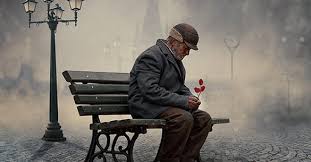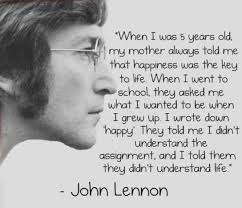I’m laying in bed listening to the rain falling, gentle, steady soothing rain the sort of rain that falls softly into a summers evening and makes the world smell sweet and clean after a warm day. I am returned momentarily to my childhood and the memory of a bedroom at our home in Stanford-le-hope where I am laying listening to just such rain feeling warm, safe and secure. It is a memory that is so sharp and the feelings are so clear that I can see the wallpaper in that room and how the light used to stream through the window and the view onto the garden with its lawn and scalloped beds so neat and tidy. I am always stunned by the strength of memories triggered in adulthood especially now I am experiencing them from such a distance.
I reflect that it is no different for those who have only bad memories to recall and that those will last on throughout life in the same way and probably with the same intensity. Sadly they will also bring with them the reliving of some of the traumas and sadness that visited them at the original event of their life. It is a great sadness for me that in the public care of young people we frequently neglect to acknowledge these memories believing that they will be expunged by the rescue or the provision of material comforts in a good alternative home with those who will show care and affection. The shame and the pain remain underneath a life appearing to be well lived and at least superficially enjoyed.
Imagine for one moment those for whom that back bedroom with the view of the neat garden brings back the horrors of lock doors, a room filled with abuse and pain with the ever present fear of footsteps coming up the stairs praying that they are passing the door to go to the bathroom. Instead of listening for the rain, trying to block out the sound of drunken shouting, of the thud of the punches thrown and a body hitting the wall followed by the creams of pain. Laying lonely, ill, despairing knowing no one will come to sooth and comfort or not knowing where the next bed will be or if indeed there will be anywhere to sleep , no bed , no warmth and the fear that accompanies street life. If anyone reading thinks this is too dramatic or over egging the case for effect I beg you to believe the unbelievable in today’s society. This is not a story of Victorian England. It is today’s reality for so many living in poverty and despair.

I recall visiting a small boy living with carers prior to an adoptive placement who at the age of 4 got out of bed every morning and put on his shoes before doing anything else. Even though he was in a safe and secure place with a delightful bedroom full of toys and books with a warm comfortable bed designed like a car, the pattern of days on the street with his Mum were firmly imprinted. They were homeless for most of his life always moving on. He had never known any sense of security or safety. don’t imagine his mother didn’t love him, I believe firmly that she did, he was not malnourished though chips and Mars bars may not have been the healthiest of diets and she had found the safest place she could every night, getting him a doctor when he was ill and giving him as much love as her desperate self could spare him. I hope someone told him this after his adoption. But these days will be his memories for ever no matter how much better his childhood becomes his shoes will always be at the ready.
As social workers and carers we face with these young people and adults totally impossible and desperate situations and we must recognise that our attempts to rescue and then provide services are only the beginning of the process of repair. We focus on these elements but do not appear to recognise or deal with their past in a way that will mean as adults every abused child can find an accommodation with their history and memories, settle these memories , adapt to their history, revisit the bits which need to be travelled through many times before peace can be found, find justice for their hurt, sometimes find the truth, find parents and siblings, find a place in the world where they fit. To achieve any of this helpers need time, time to build trusting relationships, time to talk , to visit old children’s home or family homes and schools and so on. Life story books are only a start, they are a sanitised version designed to tick another box. Often done by specialist workers for which read yet another new person. We need to be genealogists, explorers, travellers, photographers, and the archaeologists of individuals lives.
But first we need to recognise the signs and work with them. Note the girl who when admitted to a children’s home didn’t take her coat off for months and don’t just encourage her to take it off but start slowly to enquire about this behaviour. I know of care experienced adults who can only sleep facing the wall, who suffer interminable nightmares that they think will never leave them, have to have lights on at night, wake to every footstep or sleep with radios on. There are a million different behaviours alerting us to the need to help restore peace in the lives of the care experienced but we must pay attention. Paying attention to the detail in an individuals life will not only pay dividends for them but will also mean that those scarred childhoods will not result in adult lives that need to call on mental health services and other public services.
For some the rain falls softly for many the rain that falls is so scary that it blights adult life and we need to stop worrying about ticking boxes and start to focus on the real issues and provide a meaningful, life enhancing service to our young people and care experienced adults.











